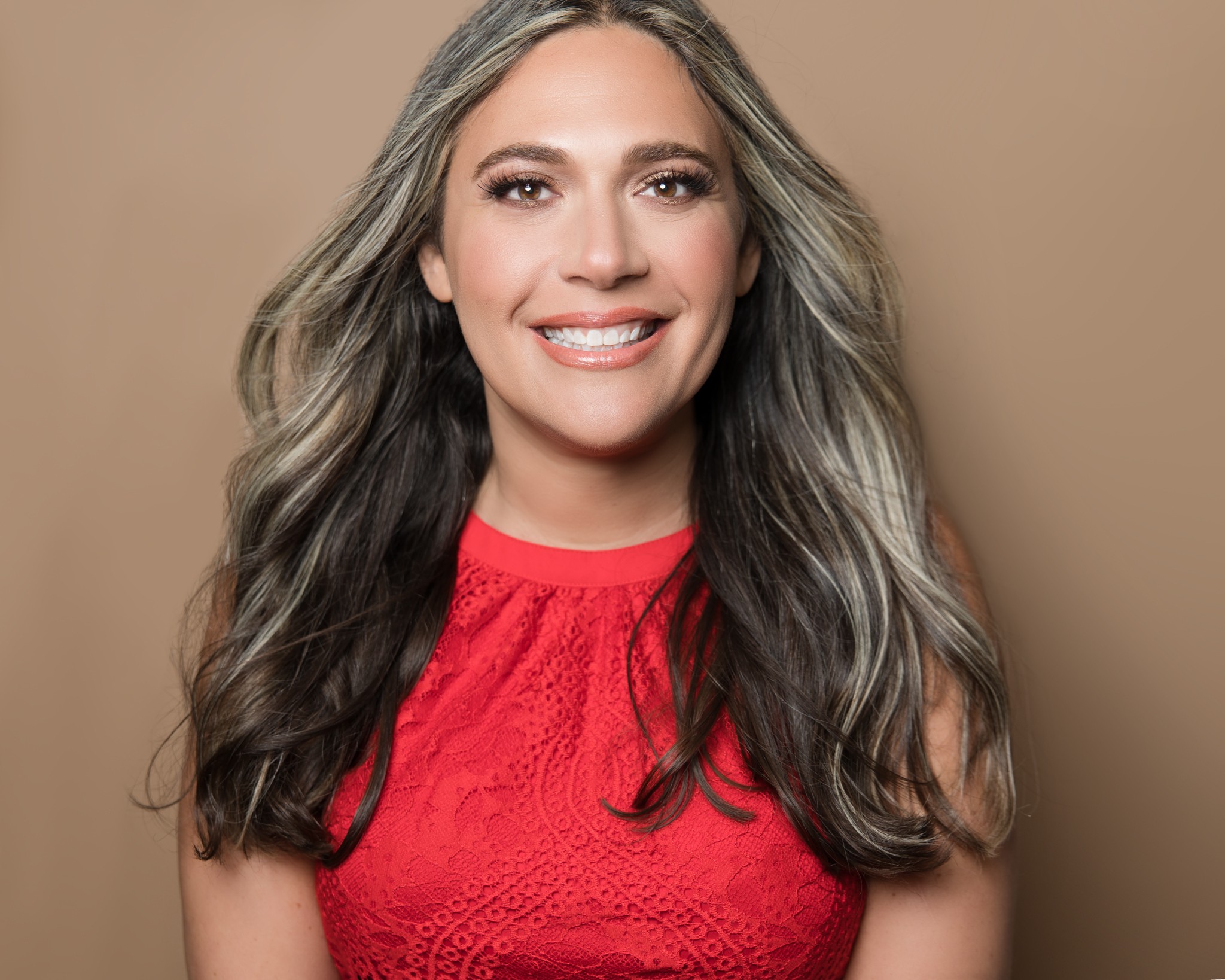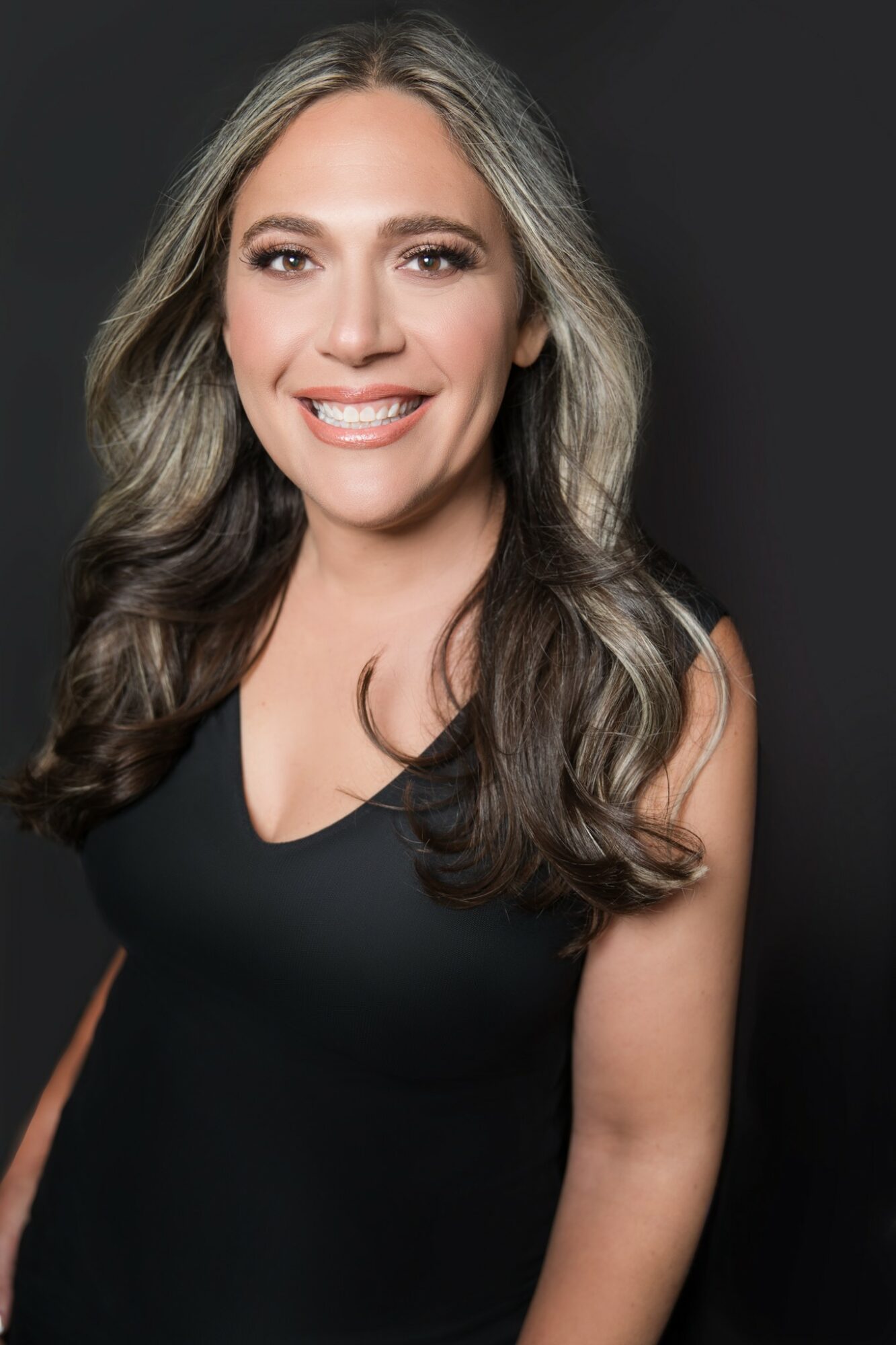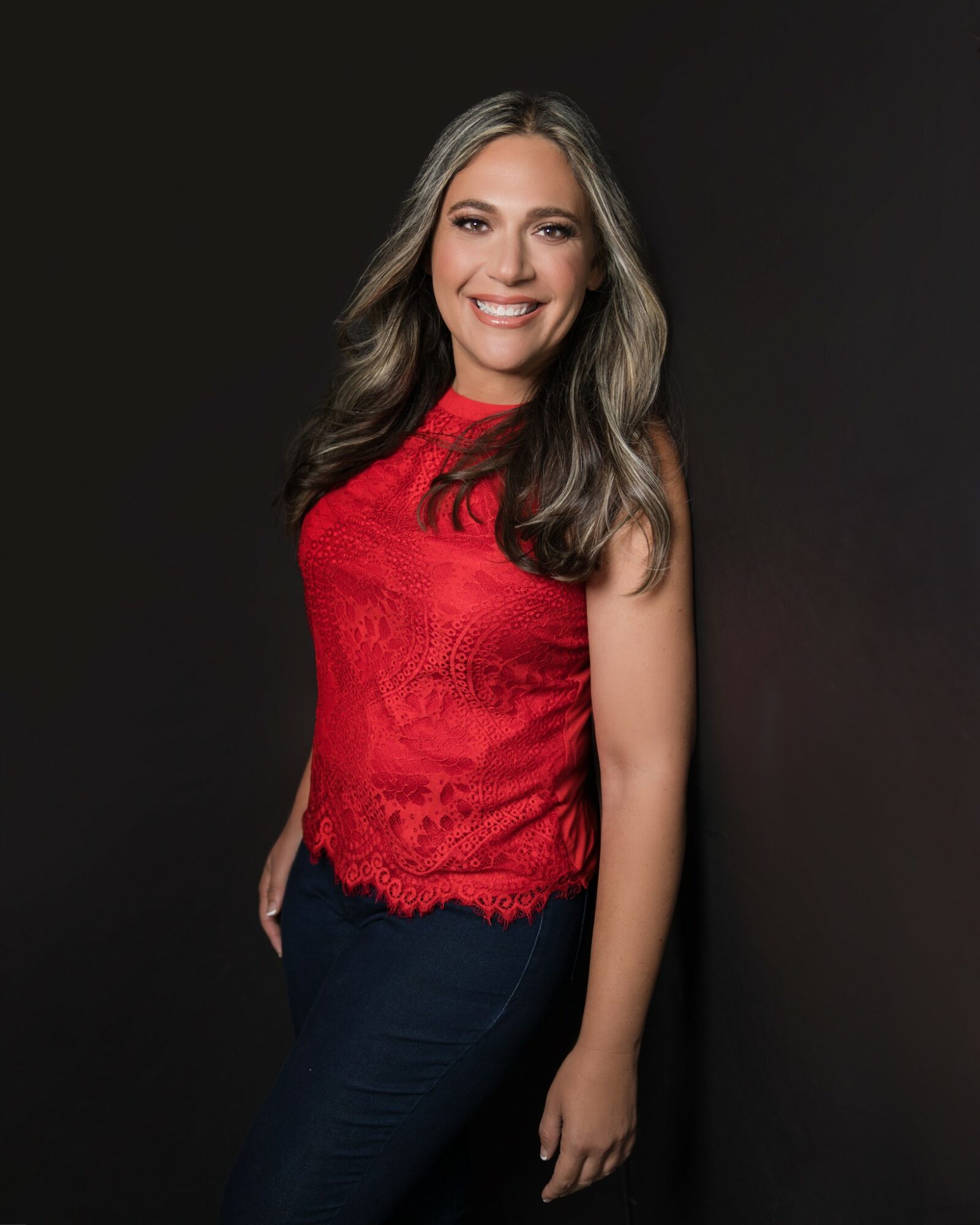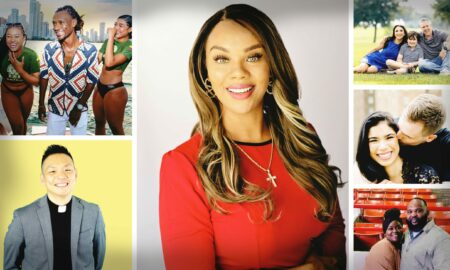

Today we’d like to introduce you to Michelle Garcia.
Hi Michelle, we’re thrilled to have a chance to learn your story today. So, before we get into specifics, maybe you can briefly walk us through how you got to where you are today?
I had always thought I would work in private practice seeing children and adolescents, so I spent my educational career getting the most varied experience I could to prepare me for this type of practice. Between school-based training and paid employment, I worked in almost every area of psychology, from sports psychology to eating disorders to group therapy and individual therapy to working with persons diagnosed with dementia, and with all ages in a variety of settings. After this, I moved to Louisiana for a break between school and internship. While there, I got an interview with a woman who headed up a program for persons with disabilities. Although I was not hired due to the short time I had before internship, she gave me her card and talked to me about my breadth of experience. I went on to complete my internship at the VA Hospital in Houston. Toward the end of this, I was going back to Louisiana and looking into private practice. My first interview was traditional Louisiana-style, very informal and over food. This owner took me to lunch to discuss my interests and his opportunity. When I asked about expected income, he explained the process that had never been talked about in school, that income is driven by time to get on insurance panels, successful clients, and marketability. In the interim, there is no guaranteed income. Like any 20-something year old, I was facing student loan debt, interest in buying a house, and moving from being a student to being a full-time adult. This was a scary prospect. So I began to look into other options. Along the way, I pulled out that same woman’s card and called her, hoping she knew of a private practice that could pay me on salary. Instead, she mentioned that she retired from the state and could I get there on Friday to interview for a job working for the state of Louisiana as the head of a team put in place by the legislatures to provide community behavioral health supports within the community. She sold me by talking about all the perks of this job but I had no idea what would ensue. I ended up getting the job and after a steep learning curve, facilitated by the wonderful people working with and supervising me, I grew to absolutely love the position. I had been bussed into New Orleans after Hurricane Katrina and worked in a shelter after Hurricane Rita to support persons with disabilities, and in general was beginning to make a name for myself. What I loved most was the ability to make a true difference for persons who had limited additional services. Due to my personal situation, I ended up moving after only three years to the north Houston area. I was offered a position in a private practice in the Spring area and so I began doing a variety of work within this practice. However, I did not feel as satisfied as I had after the ground roots efforts I had been doing in Louisiana. By this point, the woman who had gotten me the interview in Louisiana and I had become friends and so I called her, unsure of what to do next. She suggested I open my own business doing the same work I had in Louisiana. A few months later, after doing some cold calls and obtaining contracts with state-funded service providers who provided services for persons with disabilities, I left the practice and opened my own business. My business model was unlike anything that had been provided in Houston thus far in that I did not have an office but provided all services in the homes and day programs of the persons I served. This took some getting used to. I also, unfortunately being too ahead of the curve, had attempted to add to my team with a psychiatrist doing telemedicine and a nurse to provide health services. The value was not seen in that time, though I believe if I had done it now, this would have been an asset for many. Fast forward many cold calls, in person coffee or cookie deliveries to explain how my services were so different, and lo and behold, I had a thriving business. I spoke at SHSU and through that began offering a training program to students, which has developed into being a site for undergraduate (primarily Rice and FSU..FSU students even fly in for one day with us), Master’s practicum, internship, and postdoctoral fellowship students. With growth I began to hire employees and over time we have provided services across the state to persons with disabilities. At this point, we provide services to over 400 clients across the greater Houston area from Galveston to Willis and Katy to Pasadena and I have an organization with 10 total employees including clinical and admin staff. In addition to these in community supports, we offer social skills PEERS groups with a colleague through PEERS In the Woodlands, we do counseling for persons with special needs, I do testing for children as young as eighteen months through older adults for a variety of purposes, and I offer free resources indefinitely for families who have a loved one with a disability. I also testify in due process hearings, family law cases, and criminal cases where the person has a disability.
Another huge turning point for me was around 2012 when I was spending some time up in Pennsylvania and had given a presentation to the Arc of Blair County. At that time (as is still continuing), persons with disabilities were ending up in the criminal justice system due to a lack of appropriate sex education. Due to my unique presentation style and experiences, I was asked to write an innovative curriculum on sex education for persons with special needs. I and one of my employees, Brandon Delgado, LPA, who now has been with my company for 15 years, began to write this program. We conducted focus groups and eventually once the program was completed, piloted this program in their largest two school districts. We made adjustments to the program and it became a train the trainer program that could be utilized by other organizations. We ensured this was a program unlike anything else out there that offered education to persons with three levels of ability, that was data driven to track the improvement in learning that would occur, that it was multimodal, covered sixteen chapters and eighteen months worth of information, could be updated as needs arise, and that was interactive. After the program started, I did not truly realize the extent that this would become a pivot point in my career and a benefit to many. However, at lunch with a woman who sold prosthetic devices internationally, she asked about my business and I shared all of the myriad of activities we provided for persons with disabilities. In the midst of this, she stopped me and asked me to retell about the curriculum. She highly encouraged me to market this amazing program. I submitted some proposals and presented the program at a conference in California. This was truly the turning point. A woman who was the head of the Autism Society, Leslie Jackson, talked with me and gave me her card. She also connected me with Brian Kelmar who heads up a program, Dthree, in Virginia for parents, professionals, and self-advocates who have interfaced with the criminal justice system and have a diagnosis of Autism to provide support and to make changes to the laws. From this presentation to today, life has been a whirlwind. Brian saw the value in our program and used our curriculum as a guide in writing a bill that passed to put sex education programs like ours as an option for all IEPs. This bill has the wording from our program. We began to offer this program virtually due to the large number of calls I was getting all over the country for persons who needed the education we were offering here in Texas. I met an outstanding and well respected attorney, Mark Mahoney, who is well-versed in representing persons with Autism in court and consulting with other attorneys to do this effectively. He began to send me (and conjointly one of my best friends and colleagues, Dr. Natalie Montfort) cases where the person needs an assessment, and at times expert testimony, regarding how their Autism symptoms impacted their decisions that led to the case. Mark has even talked nationally about the value of my sex education program as presentations he has done. In addition, because judges did not always understand the value of educating persons with Autism differently, in order to better support persons in these situations, I sponsored my team, including myself, Brandon Delgado, LPA, who helped write the curriculum and offers individual therapy, and Dr. Josephine Avila, who runs the groups, to become Associate Sex Offender Treatment Providers (under the supervision of Dr. William Ross, LSOTP). This way, our program would additionally count as a sex offender treatment program to give increased access and acceptance of the program for persons who so greatly needed it. For our clients with Autism who end up in the criminal justice system, sex education in a manner that is meant for their learning style is the key difference that can change their trajectory. I currently serve on a workgroup with Brian Kelmar’s group, Dthree, and UVA to look at the data on recidivism with programs like ours for persons who have been in the criminal justice system and have Autism. I am now contacted nationally for persons to take our program. The goal of the program is to prevent victimization and interfacing with the criminal justice system, so I am passionate about the need for these programs to protect individuals who are often vulnerable to these issues. Therefore, I present on this topic as often as I can, including to parents, self-advocates, organizations, and criminal justice personnel. Today I am hoping to do more presenting as persons with Autism ending up in the criminal justice system due to a lack of appropriate sex education is becoming a true epidemic. This education is needed nationally, to help students in law schools as well as those who are already practicing (judges, lawyers, prosecutors) with understanding why the brain of a person with Autism is different and how that impacts these situations uniquely as well as how these situations should be treated, and to support persons with differences in learning so that they get the education sooner and do not end up in these situations in the first place (or don’t repeat the same errors if they did not get the education soon enough). I am hopeful to find avenues to do that as the next phase of my career.
Can you talk to us a bit about the challenges and lessons you’ve learned along the way. Looking back would you say it’s been easy or smooth in retrospect?
It has not been a smooth road due to the lack of understanding within the criminal justice system currently, the hesitance of parents/caregivers to enroll their loved ones in a sex education program, and the school districts often closed position in considering the need for these types of programs. Also, the need is large yet there are a small circle of us within this profession who are speaking out and understanding the need. It takes time to get the word out and to impact this type of change.
Thanks for sharing that. So, maybe next you can tell us a bit more about your business?
I believe in quality of life for all persons. What sets my business apart are many things. First and foremost, the majority of services we offer are done in the community, in the environment of the persons we are supporting. Second, we look at the person we are supporting beyond the one reason for referral. We see the whole person and their entire system of supports to determine the variety of supports needed and we try to fill those needs or coordinate with others to do so. I am proud of the passion of the clinicians who work for me in supporting this underserved population. I am proud to be able to offer free zooms where I link families with resources so they don’t have to walk their journey alone, and I tell them they can save my information so they can contact me in order to provide resources, ideas, supports anytime in the future. I love the network of persons I work with who also are passionate and making a large difference, sometimes one person at a time.
In addition to the work I do supporting persons with disabilities, I believe in helping those who need the most help, so I do assessments for all purposes, including those who are trying to become citizens but who cannot learn English, for Veterans who are seeking service-connected benefits, and for persons of all ages for diagnosis, educational supports, social security, guardianship, entering programs, dementia, etc.. Even here, I provide unique services. I do not believe there is one battery for everyone who walks into my office. I personalize the experience so that we cover all possible conditions that are occurring so the person does not have to go get testing somewhere else again soon after ours because we did not look at a particular condition, and yet I do not provide testing for those conditions that are not indicated. Furthermore, I hand type my reports and do not just use a printed out template or table as I have seen many of my colleagues turning to. Finally, on these reports, I focus on recommendations that link them with great resources to help them meet the needs that are impacting their quality of life because I feel if I link them with the right people and organizations, that program will individualize what the person needs and they will begin to feel better and have success.
Who else deserves credit in your story?
All of the people in my summary provided support – Dr. Victoria Swanson in Louisiana, my team, Mark Mahoney, Brian Kelmar, Leslie Jackson, Dr. Natalie Montfort, and of course my family. Mark, Brian, Leslie, and Natalie continually promote the value of my curriculum.
Pricing:
- Services go anywhere from free to $2000 but vary depending on what’s needed
- We offer scholarships and sliding scale
Contact Info:
- Website: https://www.drmgarcia.com


Image Credits
Image of me done by Bexwood










